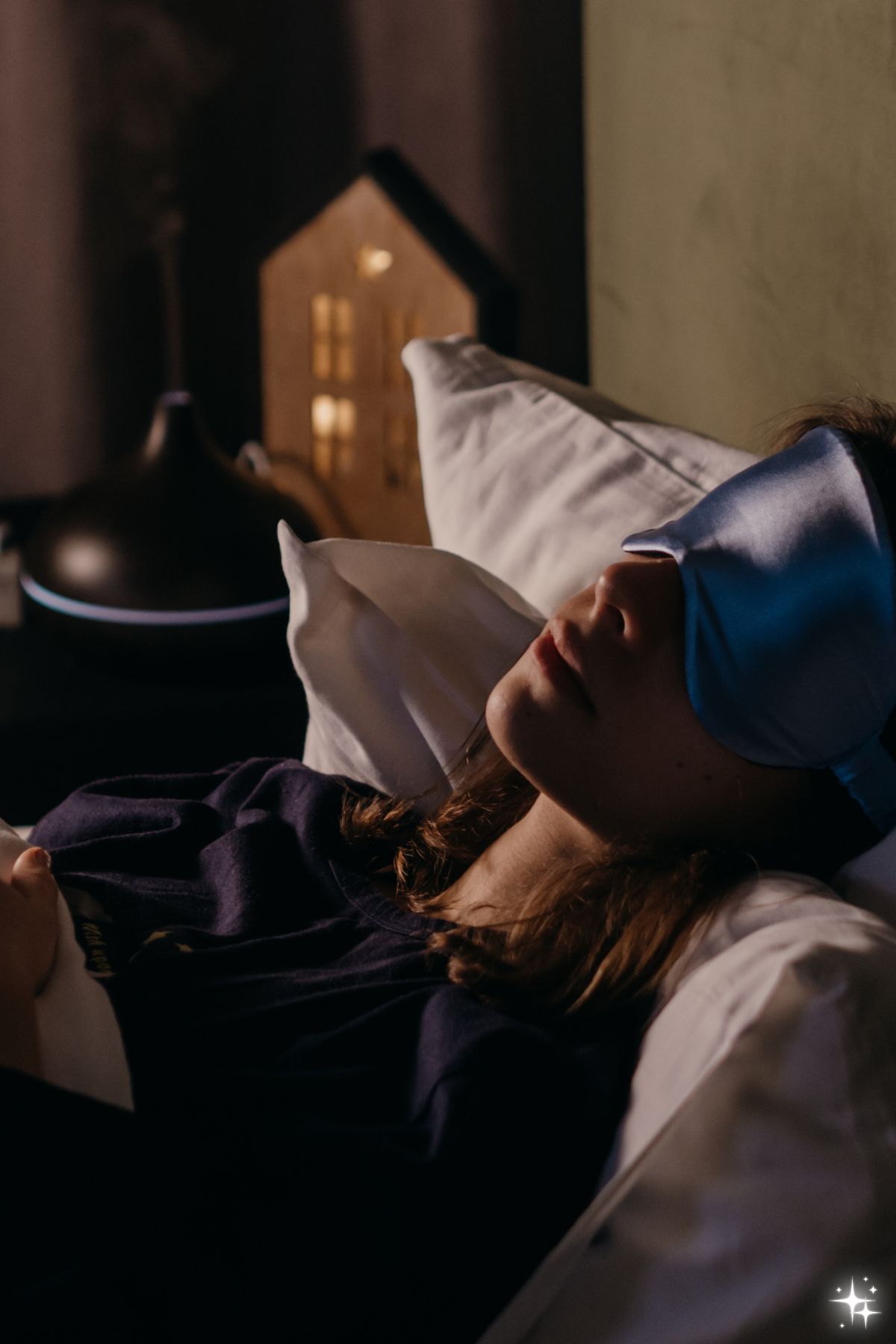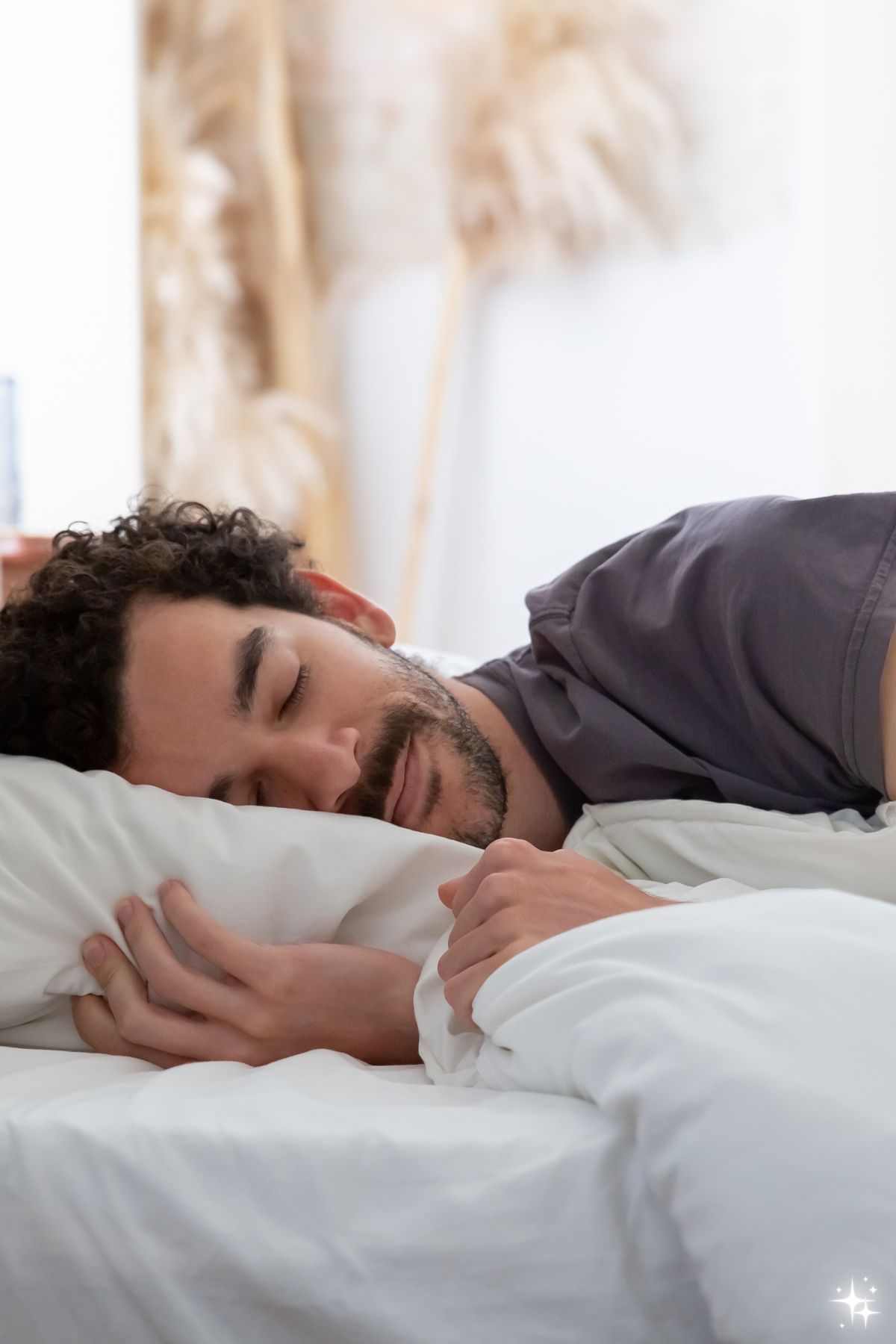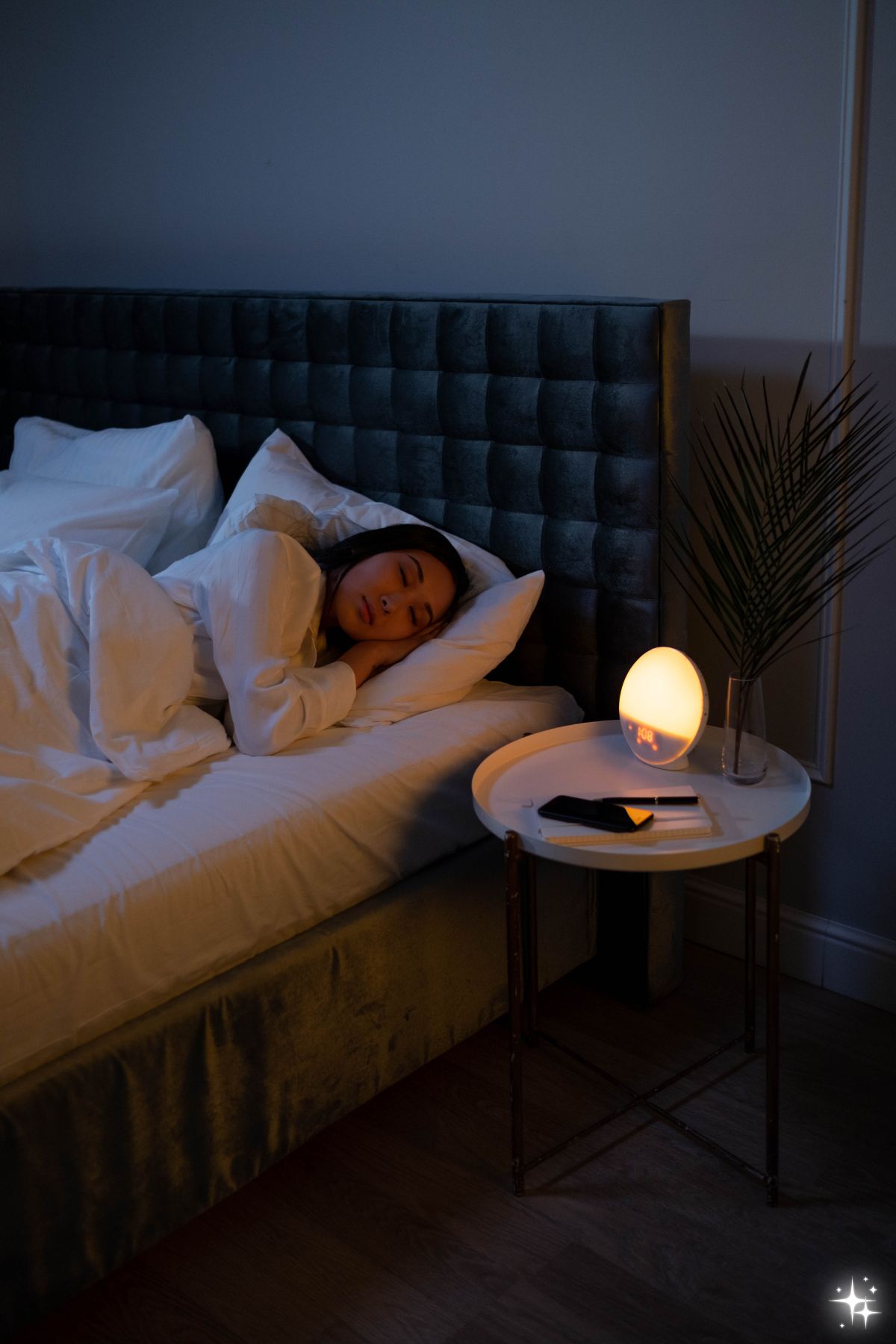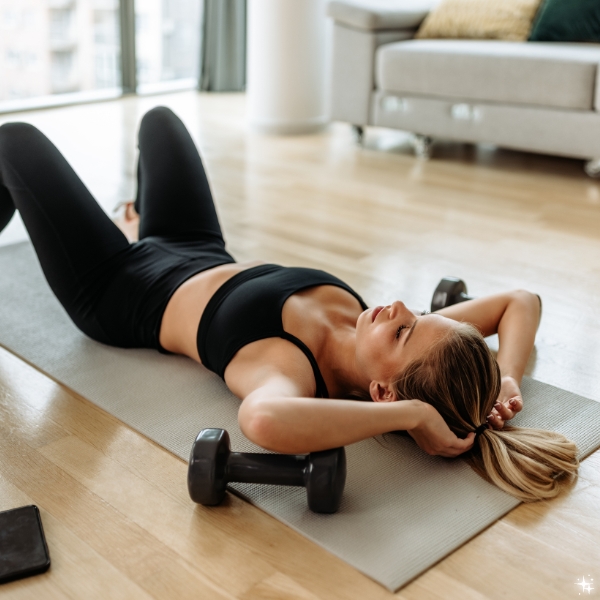Sleep Hacks For A Good Night’s Rest. Master Your Sleep Schedule: Consistency is Key. Create a Calming Bedtime Ritual for Better Sleep. Eat and Drink Smart: Nutrition Tips for Better Sleep.
This site contains affiliate links. For more info, please see our full disclosure. This post has Amazon links and as an Amazon Associate, Peppermint & Co. Ltd. earns from qualifying purchases.
Getting a good night’s sleep is essential for overall health and well-being. Quality sleep impacts everything from mood and cognitive function to physical health and longevity.
Achieving a good night’s sleep can be challenging due to various factors. Stress and anxiety are significant contributors, often causing the mind to race and making it difficult to relax.
Exposure to screens and blue light from electronic devices can disrupt the production of melatonin, the hormone that regulates sleep. Irregular sleep schedules, such as varying bedtimes and wake-up times, can interfere with the body’s internal clock.
Environmental factors, like noise, light, and uncomfortable temperatures, can also disturb sleep. Additionally, consuming caffeine or heavy meals close to bedtime can lead to restlessness.
Finally, underlying health conditions such as sleep apnea or insomnia can make getting consistent, quality sleep difficult.
Here, we’ll delve into expert advice from psychologists and doctors on how to improve your sleep quality with practical and easy-to-implement hacks. We’ll also explore the benefits of a good night’s sleep and when you can expect results.

The Benefits of a Good Night’s Sleep
According to Dr. Matthew Walker, a leading sleep expert, sleep is a non-negotiable biological necessity. A full night of restful sleep enhances memory, sharpens attention, and increases creativity. Sleep is also crucial for emotional regulation; it helps to reduce stress and anxiety and improves mood stability. (Walker, M. (2017). Why We Sleep: Unlocking the Power of Sleep and Dreams. Scribner.)
From a physical health perspective, sufficient sleep boosts the immune system, reduces the risk of chronic diseases such as heart disease and diabetes, and aids in weight management by regulating hunger hormones. Overall, good sleep promotes longevity and enhances the quality of life.
Sleep Hacks For A Good Night’s Rest
Maintain a Consistent Sleep Schedule
EXPERT ADVICE. Dr. Michael Breus, a clinical psychologist, emphasizes the importance of going to bed and waking up at the same time every day, even on weekends. This helps regulate your body’s internal clock, making it easier to fall asleep and wake up naturally. (Breus, M. (2006). Good Night: The Sleep Doctor’s 4-Week Program to Better Sleep and Better Health. Dutton.)
PUT IT TO WORK. Set a regular bedtime and wake-up time, and stick to it. Use an alarm not just for waking up, but also as a reminder to start winding down at night. Give yourself time and grace as you navigate this change. It can take weeks to set this pattern and for your body to adapt to it.

Create a Relaxing Bedtime Routine (Sleep Hacks)
EXPERT ADVICE. Dr. Shelby Harris, a sleep psychologist, suggests creating a calming pre-sleep ritual. This might include activities such as reading, taking a warm bath, or practicing mindfulness meditation. (Harris, S. (2018). The Women’s Guide to Overcoming Insomnia. W.W. Norton & Company.)
PUT IT TO WORK. Dedicate the last 30-60 minutes before bed to winding down. Dim the lights, and engage in relaxing activities that help signal to your body that it’s time to sleep. You can also do your self-care routine during this time.
Optimize Your Sleep Environment
EXPERT ADVICE. According to the National Sleep Foundation, an optimal sleep environment is cool, dark, and quiet. Eliminating light and noise disruptions can significantly improve sleep quality.
PUT IT TO WORK. Use blackout curtains, earplugs, or white noise machines to create a serene sleeping environment. Keep the room temperature cool, ideally between 60-67°F (15-19°C).
Limit Exposure to Blue Light
EXPERT ADVICE. Dr. Charles Czeisler, a professor of sleep medicine, warns that blue light from screens can interfere with the production of melatonin, the sleep hormone. (Czeisler, C. (2020). Harvard Health Publishing: Blue Light Has a Dark Side.)
PUT IT TO WORK. Avoid screens (phones, tablets, computers) at least an hour before bed. If you must use a device, consider using blue light filters or glasses designed to block blue light.

Watch What You Eat and Drink
EXPERT ADVICE. Nutritionist Dr. Lisa Mosconi points out that certain foods and drinks can either promote or hinder sleep. Caffeine and heavy meals can disrupt sleep, while foods rich in tryptophan, magnesium, and melatonin can promote it. (Mosconi, L. (2020). The XX Brain. Avery.)
PUT IT TO WORK. Avoid caffeine and large meals close to bedtime. Instead, opt for a light snack like a banana, a handful of nuts, or a small serving of yogurt.
Do It Easy
Start with small steps. Slowly integrate the change into your life. Anything you push too hard, you will eventually resent. Do it with ease and make it fun for you to the point that you now look forward to sleeping and doing your sleep rituals.
This WILL look different for everyone. It’s ok to compare notes and see what works for other people. But remember that only you know your situation better than anyone else. Cater the advice you receive and adjust accordingly to fit your situation and circumstances.
If it is still challenging to get a good night’s sleep and it is affecting your health- mental, physical, and emotional, it will be a great idea to consult your doctor or a sleep professional. They can develop solutions for you based on your situation and condition.
When to Expect Results (Sleep Hacks)
Implementing these sleep hacks can lead to improvements in sleep quality and overall well-being. According to experts, you may start to notice benefits within a few days to a couple of weeks.
Dr. Rebecca Robbins, a sleep researcher, explains that while some changes, like a consistent sleep schedule, might yield immediate benefits, others, like diet adjustments, may take a bit longer to show results. (Robbins, R. (2019). Sleep for Success! AuthorHouse.)
By committing to these practices, you can create a sustainable routine that enhances your sleep and daily life. Remember, the goal is to integrate these hacks seamlessly into your lifestyle without feeling forced, making good sleep a natural and effortless part of your routine.
** This post has Amazon links and as an Amazon Associate, Peppermint & Co. Ltd. earns from qualifying purchases.







